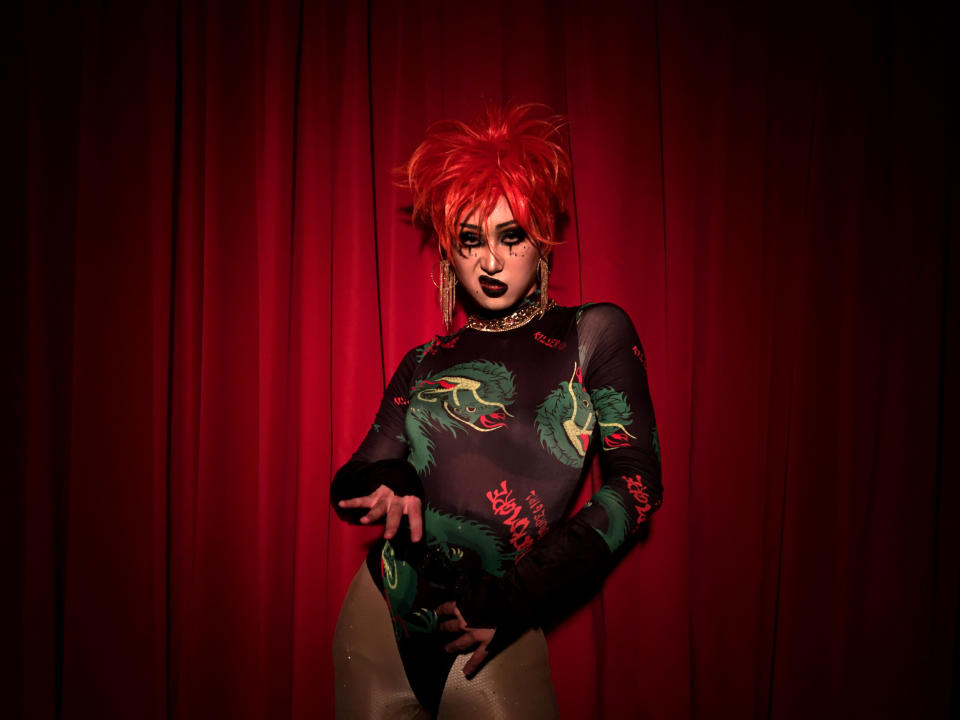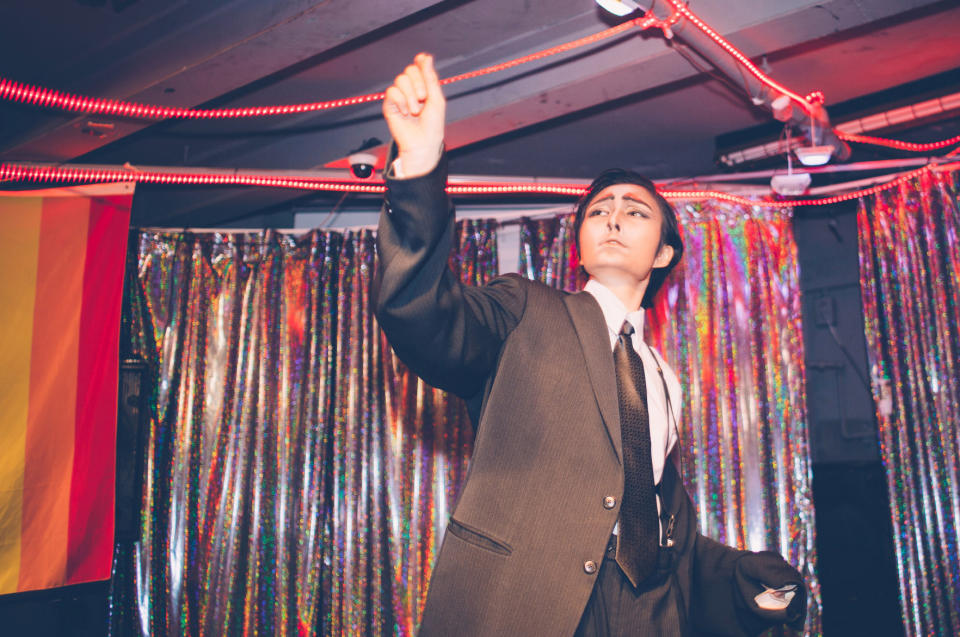Digital drag show supports Seoul's queer community stigmatized by pandemic
Dressed in a hanbok, a traditional Korean dress, drag queen G.VAN was the first act of the night. Appearing on stage at Trance, one of the oldest gay venues in Seoul, the performer stood in front of a solid red backdrop, lit by a single circular spotlight.
Performing a cover of a Korean trot song — a genre of popular music in Korea — rearranged and performed in a traditional style, the reaction from the audience was immense. But it didn’t come in the form of applause. Instead, it came in the form of a constant stream of emojis and comments scrolling up a screen.
The event was a virtual drag show held last Friday to raise funds for queer nightlife performers in Seoul impacted by the coronavirus pandemic. The mutual aid benefit was organized by members of KQTxPROJECT, a queer Korean grassroots group based in New York City and Seoul.

After a spike of coronavirus infections in May led to a renewed shutdown of bars and nightclubs inside Seoul — along with accusations that the virus was being spread by the city’s LGBTQ community — organizers were inspired to do something in support of the community.
“There was a lot of urgency in Seoul because a lot of queer nightlife performers have no source of income anymore,” Patrick Lee, one of the organizers of the event, told NBC Asian America. “It just felt like the right moment to try to make something happen.”
Prerecorded and broadcast on Instagram Live, the mutual aid benefit featured performances from several drag performers popular in Seoul’s queer nightlife scene – and served as a bridge between LGBTQ communities in South Korea and those from across the Asian diaspora.
Drawing a live audience of about 260 people, the roughly 30-minute show raised more than $4,500 through pre-show ticket sales and tips through mobile payment apps, according to Lee.
Iemi Hernandez-Kim joined the livestreamed event from New York City after hearing about the effort from a friend.
“I’m half Korean and fully queer, so I wanted to see how my culture does drag,” Hernandez-Kim said. “It was eye opening for me. I don’t know a lot of Korean queer people. I loved seeing things from my culture explored in drag.”
The five-person set included a performance by drag king Azangman, a popular figure in Korea’s queer scene, and a closing act by drag queen Jungle, who put on an impassioned performance to Robyn’s “Dancing On My Own.”

“I do this work for myself, and to uplift my queer community,” Jungle said in a statement. “But I really hope our community doesn’t respond to hatred by closing up. We’re queer, and that means our whole lives have been creative. So we can find better ways of fighting back, like through this mutual aid virtual show.”
Homophobia against the LGBTQ community in South Korea has seen an uptick in the past few weeks, after Korean media linked a cluster of new coronavirus infections in May to gay bars and nightclubs in Itaewon, a popular district in Seoul. Members of the LGBTQ community have faced an increase in online threats and discrimination since, complicating efforts to get those who were possibly exposed tested since many fear doing so will out them in the process.
“If you go and get tested for COVID, your friends, your family, your co-workers, would just infer or assume that you had to get a COVID test because you were at the gay clubs, like the media was reporting,” Lee said.
It was this fear and backlash that organizers of Friday’s event were hoping to fight against, while also building solidarity between South Korea’s LGBTQ community and those throughout the Asian diaspora.
SuYoung Yun was another participant from Seattle.
“It is so important for me as a queer Korean to support queerean people wherever they are in whatever capacity they show up,” said Yun, using slang for queer Korean. “What I took away from this experience is that we are smart, creative, fun and fabulous in the ways we organize and support each other even in the midst of a pandemic.”

